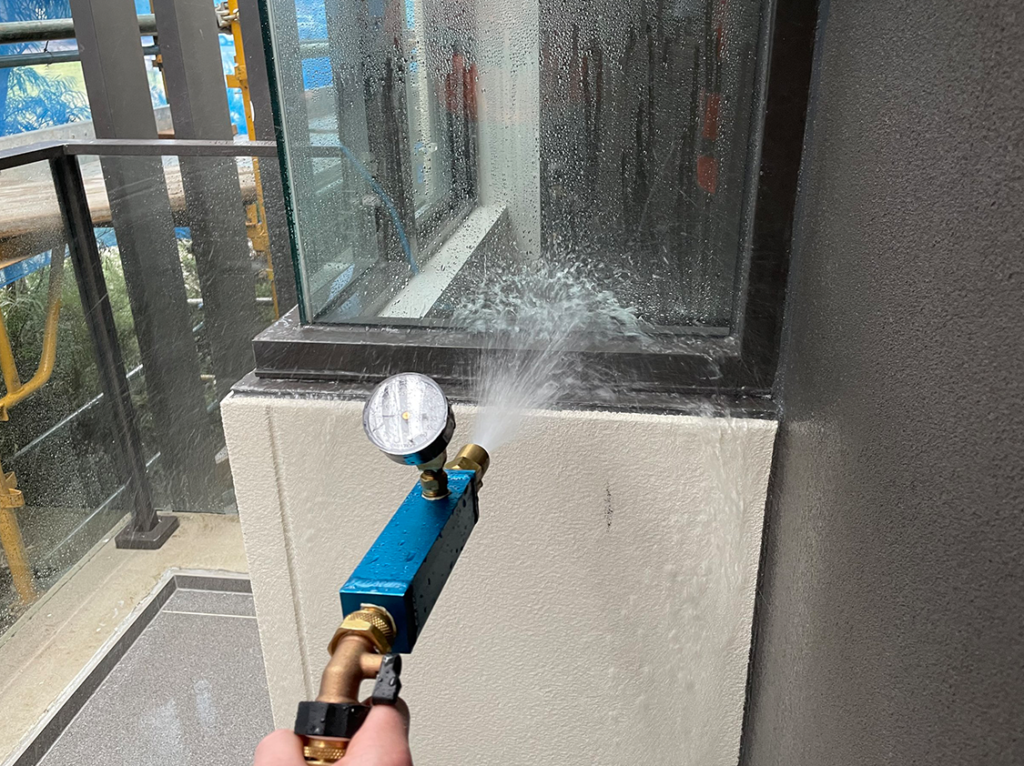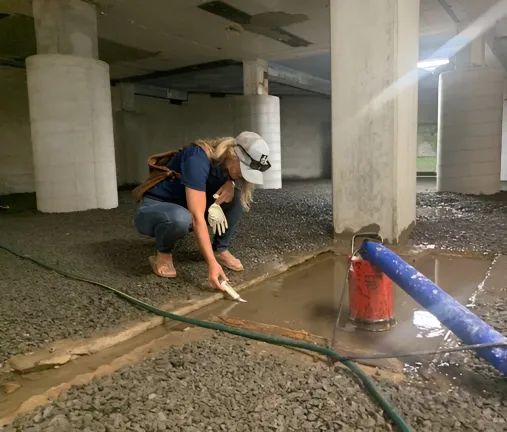their longevity and the well-being of occupants. A thorough quality testing process is essential to verify that all building components meet the highest engineering standards. From glass to water leakage, roof insulation, and drainage systems, these tests play a critical role in ensuring comprehensive building protection against environmental and structural risks. This article explores the significance of quality testing in construction and highlights its impact on safeguarding buildings from long-term damage.
The Importance of Quality Testing in Engineering Projects
Quality testing is a cornerstone of any successful engineering project. It ensures that the materials and systems used in construction are capable of withstanding harsh environmental conditions, preventing future failures. By systematically testing components, such as glass, roofing, and drainage systems, engineers can proactively identify potential issues before they lead to structural damage or costly repairs.
Key Objectives of Quality Testing:
- Material Verification: Ensuring that materials meet specific standards of strength and durability.
- Risk Mitigation: Identifying and addressing potential risks like cracks, leaks, or system failures.
- Cost Efficiency: Reducing future maintenance costs by addressing issues early in the construction process.
- Compliance: Ensuring compliance with national and international building codes and safety regulations.
Through regular and precise testing, engineers not only verify the structural soundness of a building but also enhance its overall resilience to external forces, ultimately protecting the investment made in the project.
Glass Testing: Ensuring Durability and Safety
Glass is a critical component in modern buildings, serving both aesthetic and functional purposes. It plays a key role in ensuring the safety and comfort of a building’s interior by controlling thermal properties and providing resistance against external forces. Glass testing is, therefore, essential to confirm its durability and safety under various conditions.

Key Glass Testing Standards:
Safety Shatter Testing
In the event of accidental breakage, glass should not shatter into dangerous, sharp pieces. Tempered glass, which breaks into small, blunt fragments, is tested to ensure compliance with safety standards. This is especially important in public or high-traffic areas where glass breakage could pose a significant risk to occupants.
Thermal Resistance
Temperature fluctuations can cause glass to crack or deform. Glass testing simulates extreme thermal conditions to ensure that the material remains stable, even under intense heat or cold. This test is critical for maintaining structural integrity and energy efficiency in the building.
Break Resistance
Glass is subjected to mechanical pressure tests to ensure it can withstand impact from wind, debris, or accidental blows. This is particularly important in regions exposed to severe weather conditions, where glass breakage can pose serious safety hazards.
By ensuring glass is tested for these factors, builders can be confident in the safety and performance of windows, facades, and other glazed surfaces.
Water Leakage Testing: Protecting Against Moisture Damage
Water infiltration is one of the most significant threats to the long-term durability of a building. Left unchecked, water leaks can cause structural deterioration, increase humidity, promote mold growth, and compromise the health and safety of occupants. Water leakage testing is designed to detect weaknesses in a building’s envelope and prevent moisture-related damage.

Essential Water Leakage Tests:
Waterproofing Material Evaluation
The materials used to waterproof the building—such as membranes, sealants, and flashing—are tested for their durability and effectiveness. This ensures that the chosen materials will provide long-term protection against leaks, even in extreme environmental conditions.
Water Pressure Test
During this test, walls and roofs are subjected to high-pressure water to evaluate their ability to resist extreme weather conditions, such as floods or torrential rains. Buildings in flood-prone areas benefit greatly from this test as it ensures their capacity to withstand significant water exposure.
Water Spray Test
This test simulates heavy rain conditions by spraying large amounts of water onto doors, windows, and roofs to determine if any moisture penetrates the building. It helps identify vulnerable points that may need reinforcement or resealing to prevent future leaks.
By preventing water intrusion, buildings remain structurally sound, and the need for costly repairs is minimized.
Roof Insulation Testing: Ensuring Energy Efficiency and Structural Protection
The roof is a critical part of any building’s envelope, providing protection from the elements and contributing to the overall energy efficiency of the structure. Roof insulation testing ensures that the roof not only prevents water infiltration but also helps regulate internal temperatures, reducing energy consumption.

Key Roof Insulation Tests:
Insulation Layer Inspection
Insulation layers are inspected to ensure that they are installed correctly and remain intact over time. Any gaps or weaknesses in the insulation can lead to reduced effectiveness, allowing moisture or temperature fluctuations to compromise the roof’s performance.
Thermal Insulation Test
Roof insulation plays a vital role in maintaining energy efficiency. This test measures how well the roof minimizes heat loss during cold weather and prevents heat gain during the summer months. Buildings with proper insulation have lower heating and cooling costs, making them more energy-efficient and environmentally friendly.
Permeability Test
This test evaluates the roof's ability to prevent water from seeping through the insulation layers. Effective waterproofing is critical to maintaining the roof’s integrity, especially during heavy rain or snow. A well-insulated roof prevents water damage to both the roof structure and the interior of the building.
Through comprehensive roof insulation testing, building owners can be assured of reduced energy costs and enhanced structural durability.
Drainage System Testing: Protecting Foundations and Infrastructure
Effective drainage systems are essential for managing water flow around buildings, ensuring that water is properly discharged to avoid damage to foundations and surrounding infrastructure. Quality testing of drainage systems is critical to prevent blockages, leaks, or inefficiencies that could lead to water accumulation and structural damage.

Key Drainage System Tests:
Manhole Inspection
Manholes and access points are tested to ensure they are functioning correctly and free from blockages. Proper drainage helps prevent water from pooling around the building, which can lead to foundation weakening and other structural issues.
Pressure Test
This test evaluates the drainage system's ability to handle high-pressure water flow, ensuring that it can perform effectively under peak usage conditions, such as during heavy rainstorms.
Leakage Test
Pipes and manholes are inspected for leaks that could erode the foundations of the building or cause environmental damage. Early detection of leaks helps avoid more significant issues down the line, such as flooding or infrastructure failure.
By testing drainage systems regularly, engineers ensure that water is effectively managed and that the building’s infrastructure remains protected.
The Role of Quality Testing in Preventing Future Problems
Quality testing is a proactive approach to maintaining building safety and performance. By conducting regular tests, potential defects can be identified and addressed before they become major problems. This prevents costly repairs and prolongs the lifespan of the building.
Key Benefits of Regular Quality Testing:
- Reduced Repair Costs: Identifying issues early on minimizes the likelihood of expensive repairs down the line.
- Enhanced Safety: Regular testing ensures that all systems meet safety standards, reducing the risk of structural failures or accidents.
- Extended Building Lifespan: By ensuring the durability of key building components, quality testing helps extend the overall lifespan of the structure.
Kayan Engineering Consultancy: Leaders in Quality Testing
Kayan Engineering Consultancy is a renowned provider of comprehensive quality testing services, specializing in solutions that ensure the structural integrity and safety of buildings. From glass inspections to water leakage testing, roof insulation assessments, and drainage system evaluations, Kayan employs advanced technologies and a team of skilled engineers to deliver precise results.
Why Choose Kayan Engineering Consultancy?
Tailored services that meet the unique needs of each project, ensuring optimal building protection
Decades of experience in quality testing and engineering solutions.
Utilizes the latest testing equipment to guarantee reliable and accurate results.

- Kayan Engineering Consultants is the best engineering consulting office in the UAE.
Frequently Asked Questions About Quality Testing
Why are quality tests important for buildings?
Quality tests ensure the structural integrity and safety of buildings, preventing defects that could lead to costly repairs.
How do water leakage tests protect the building?
Water leakage tests identify and mitigate potential points of water infiltration, protecting the building from moisture damage and mold growth.
Do roof insulation tests improve energy efficiency?
Yes, roof insulation tests help verify the effectiveness of insulation, leading to improved energy efficiency and reduced heating and cooling costs.
How often should drainage systems be tested?
Drainage systems should be inspected regularly, typically on an annual basis, to ensure there are no leaks or blockages that could compromise the building’s infrastructure.
Conclusion
Quality testing is essential for ensuring the safety, durability, and long-term performance of buildings. By implementing rigorous testing processes for glass, water leakage, roof insulation, and drainage systems, engineers can protect structures from environmental risks and extend their lifespan. Kayan Engineering Consultancy offers expert solutions to help safeguard your building and ensure that it meets the highest standards of quality and safety.

